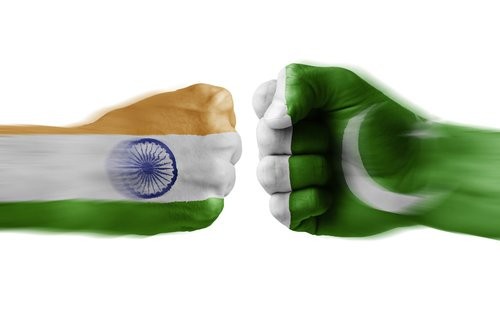
India and Pakistan are inching towards another milestone in their fraught relationship – 10 years without any structured or sustained dialogue aimed at addressing outstanding issues such as terrorism, Kashmir and humanitarian issues.
Within days of the Mumbai attacks carried out by operatives of Pakistan-based Lashkar-e-Taiba during November 26-29, 2008, India called off the more than a decade-old composite dialogue, with Indian diplomats saying it could no longer be business as usual.
To be sure, there have been several interactions in this period, but no composite dialogue. Terrorism emanating from Pakistani soil remains the central hurdle to New Delhi resuming talks with Islamabad. External affairs ministry spokesperson Raveesh Kumar said on October 18 there is currently “no proposal for a Track 1 or 1.5 dialogue or meetings between India and Pakistan.”
“We have time and again very clearly mentioned talks and terror can’t go together, that it was one of the reasons why the scheduled meeting in New York between the two foreign ministers (in September) was cancelled,” he told a news briefing.
The spokesperson made it clear the “onus is on Pakistan to take credible steps to create conducive conditions” for talks, “which of course, means taking action against terrorist infrastructure which operates from its soil.”
Pakistan, however, remains hopeful of some sort of breakthrough despite the cancellation of the meeting of the foreign ministers on the margins of the UN General Assembly, with information minister Fawad Chaudhry saying talks remain the only option.
“Pakistan and India have three options: We could have war, and we already had three… Follow the offensive defence policy of (Indian National Security Advisor) Ajit Doval and keep weakening each other from the inside, or let’s try to talk to each other while softening our hardline positions and help each other in the economic and social sectors,” Chaudhry said over phone from Islamabad
“We have tried the first two options for 70 years, let’s try the third one for a change,” he added.
In the decade since the Mumbai attacks, India and Pakistan have also held several one-off meetings to discuss matters such as trade or the repatriation of elderly and mentally ill prisoners, and their officials have met at multilateral forums such as various Saarc organisations.
India’s former prime minister Manmohan Singh met his then Pakistani counterpart Yousaf Raza Gilani on the sidelines of a Non-Aligned Movement summit in Egypt less than eight months after the Mumbai attacks and made a significant concession on Balochistan, but the two sides were unable to resume dialogue.
More recently, Prime Minister Narendra Modi invited his then Pakistani counterpart Nawaz Sharif to his swearing-in in 2014 and even visited Sharif in Lahore in December 2015.
Modi’s visit was preceded by external affairs minister Sushma Swaraj’s trip to Islamabad the same month, during which the two sides agreed to launch what was called a “comprehensive dialogue” covering the eight topics as the composite dialogue along with some additional components.
But the proposal was junked following the Pathankot terror attack blamed on Pakistan-based terrorists.
TCA Raghavan, India’s former envoy to Pakistan, said many in the Pakistani leadership still didn’t grasp how much of a game changer the Mumbai attacks was. “This was a certain transgression of trust that the Indian public hasn’t forgiven as yet,” he said.
The lack of progress in efforts to resume talks reflected the deepening domestic crisis in Pakistan and there was also the factor of domestic politics on both sides. “Right now, without probably being intended like that, the election cycles of India and Pakistan have disrupted diplomacy,” Raghavan said.


.jpeg)

